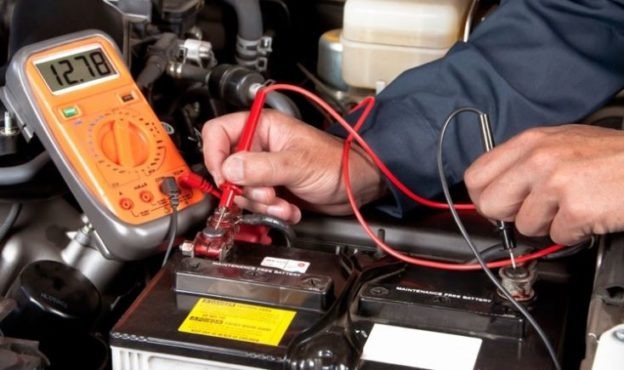
The Effect of Temperature on Car Battery Lifespan
Introduction:
Car batteries are electrochemical systems whose performance is significantly affected by ambient temperature. The environment in which the battery operates plays a major role in determining its efficiency, capacity, and service life.
Effects of High Temperature on Batteries:
-
High temperatures accelerate the chemical reactions inside the battery.
-
This increased activity causes faster evaporation of the electrolyte, reducing the liquid level (especially in non-sealed batteries).
-
Elevated temperatures also lead to increased corrosion of the internal lead plates, shortening battery life.
-
As a general rule, every 10°C rise in temperature can reduce a battery’s lifespan by approximately 20–30%.
-
Excessive heat can also cause battery swelling or structural damage.
Effects of Low Temperature on Batteries:
-
Cold temperatures slow down chemical reactions, reducing the battery’s effective capacity.
-
For instance, at -18°C (0°F), battery capacity can drop by up to 50%.
-
This drop limits the battery’s ability to deliver sufficient power to start the engine.
-
Extremely cold conditions increase the internal resistance of the battery, resulting in voltage drops.
-
However, cold temperatures rarely cause permanent battery damage; functionality usually returns when temperatures rise.
Impact of Temperature Fluctuations and Thermal Shocks:
-
Repeated temperature changes or sudden thermal shocks can damage internal battery components.
-
These fluctuations may cause plate cracking, corrosion, and a significant reduction in service life.
-
Therefore, AGM or GEL batteries, which are more resistant to thermal extremes, are recommended for regions with highly variable climates.
Ways to Protect the Battery from Extreme Temperatures:
-
In hot climates, park the vehicle in shaded areas and use battery covers to reduce heat exposure.
-
In cold climates, battery insulation wraps or heating systems can help maintain optimal operating temperatures.
-
Using smart chargers that adjust the charge rate based on ambient temperature is also beneficial.
Conclusion:
The ambient temperature in which a car battery operates is a critical factor in determining its lifespan and performance. High temperatures accelerate aging, while low temperatures impair capacity and starting power. Choosing the right battery technology and protecting the battery from thermal extremes can significantly enhance its durability and reliability.
